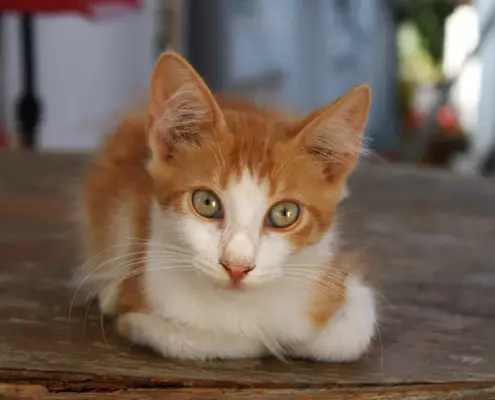
Cats are one of the most beloved pets around the world. They are known for their independent and mysterious nature, which has fueled many stereotypes about their personalities. However, the truth is that cats are complex creatures with unique personalities that can vary greatly from one individual to another. In this article, we will explore the science behind cat personalities, common traits, factors that shape their personalities, and tips for understanding and connecting with your feline friend.
Introduction to Cat Personalities
Cats have been domesticated for thousands of years, and their personalities have evolved alongside their relationship with humans. While some cats are more reserved, others are outgoing and affectionate. Some cats love to play and explore, while others prefer to spend their time sleeping and lounging. The range of personalities in cats is vast, and it is important to understand that each cat is an individual with unique needs and preferences.
The Science Behind Cat Personalities
The study of cat personalities is a relatively new field. However, recent research has shown that cats have complex personalities that are shaped by a variety of factors, including genetics, early life experiences, and socialization. One study found that cats have five primary personality traits: neuroticism, extraversion, dominance, impulsiveness, and agreeableness. These traits are similar to those found in humans and can help us understand our feline friends better.
Common Cat Personality Traits
While every cat is unique, there are some common personality traits that many cats exhibit. For example, some cats are more vocal than others, while some are more independent. Some cats are more affectionate and outgoing, while others are shy and reserved. Understanding these traits can help you better understand your cat’s needs and preferences.
Factors That Shape a Cat’s Personality
Many factors can shape a cat’s personality, including genetics, early experiences, socialization, and environment. For example, cats that are raised in a home with lots of socialization and positive experiences are more likely to be outgoing and friendly. On the other hand, cats that are raised in isolation or with negative experiences may be more fearful or aggressive. It is essential to understand these factors to provide the best possible care for your feline friend.
Understanding Shy and Aloof Cats
Some cats are naturally more reserved and aloof than others. This can be due to genetics, early experiences, or simply their personality. Shy cats may need extra time and patience to warm up to new people and environments. It is important to provide these cats with a safe and comfortable environment, plenty of positive reinforcement, and lots of opportunities for socialization.
The Social and Outgoing Cat Personality
Some cats are social butterflies and love to interact with people and other animals. These cats often crave attention and affection and enjoy playing and exploring. They thrive in environments with lots of socialization and stimulation.
The Independent and Adventurous Cat Personality
Other cats prefer to spend their time alone and are more independent. These cats often enjoy exploring and may be less interested in socialization and affection. They still need love and care, but they may prefer to have their space and independence respected.
Dealing With Aggressive or Dominant Cat Personalities
Some cats may exhibit aggressive or dominant behavior, which can be challenging to manage. It is important to understand the root of this behavior, which can be caused by fear, pain, or territorial issues. Providing these cats with a safe and comfortable environment, plenty of positive reinforcement, and lots of opportunities for socialization can help manage these behaviors.
Tips for Understanding and Connecting With Your Cat’s Unique Personality
Understanding your cat’s unique personality is essential for providing the best possible care. Here are some tips for connecting with your feline friend:
- Observe your cat’s behavior and body language to understand their needs and preferences.
- Provide a safe and comfortable environment with plenty of opportunities for socialization and stimulation.
- Use positive reinforcement, such as treats and praise, to encourage good behavior.
- Be patient and understanding, especially with shy or aloof cats.
- Respect your cat’s boundaries and independence.
Conclusion
Cats are complex creatures with unique personalities that can vary greatly from one individual to another. Understanding your cat’s personality is essential for providing the best possible care and building a strong bond with your feline friend. By observing their behavior, providing a safe and comfortable environment, and using positive reinforcement, you can help your cat thrive and live a happy and healthy life.
If you enjoyed my article, I would appreciate you sharing it with your network.

Sima Ndlebe
Sima writes for CatBuzz. He is interested in Cats, Health and Fitness, and Entrepreneurship.
Published: 31 October 2023



